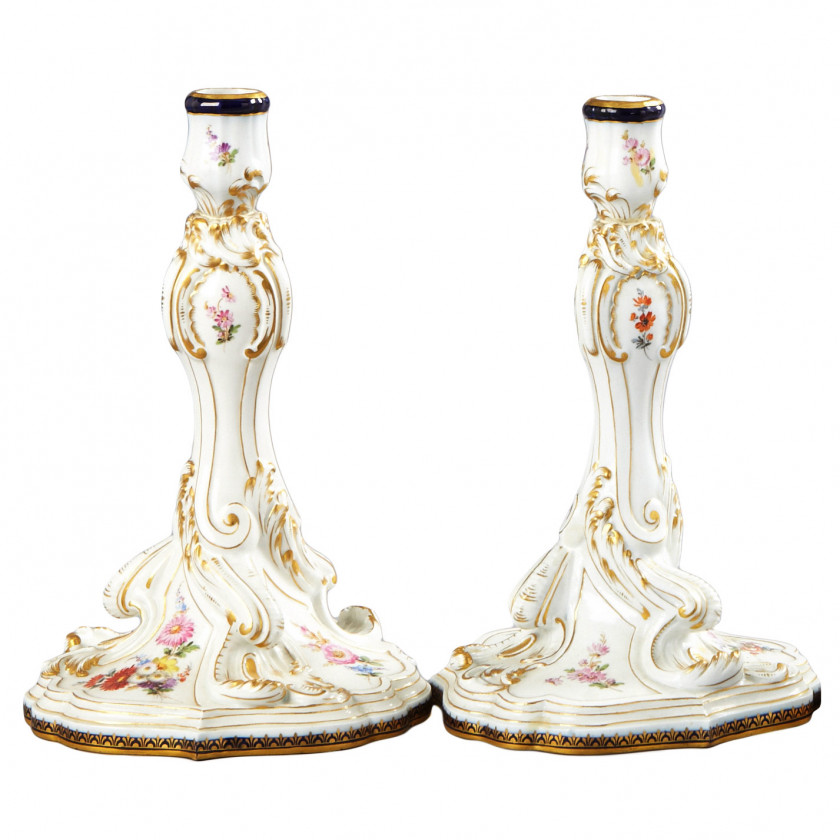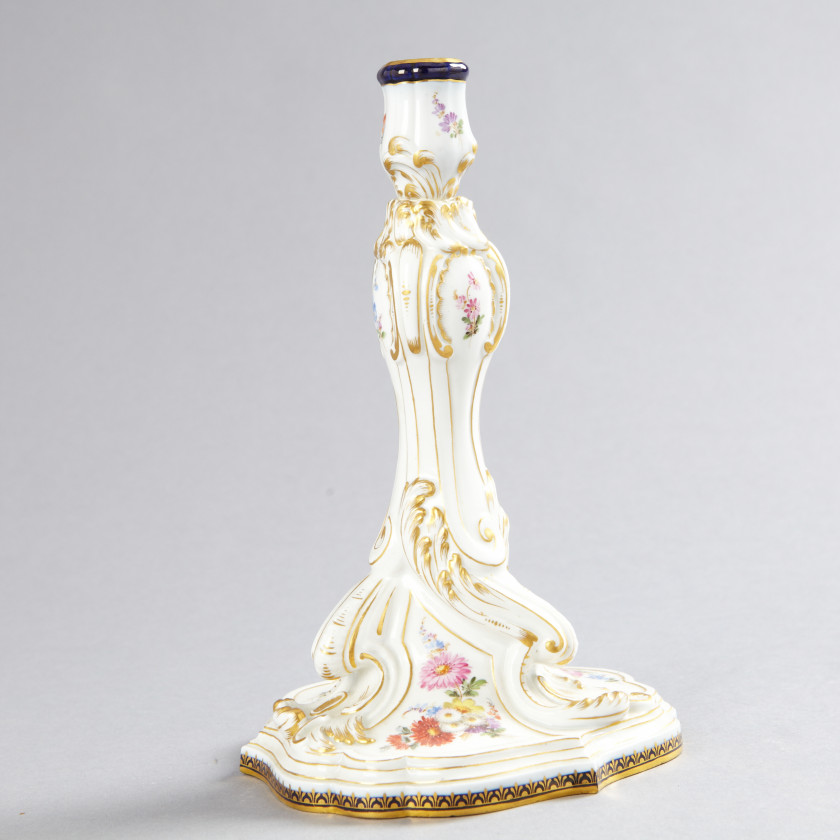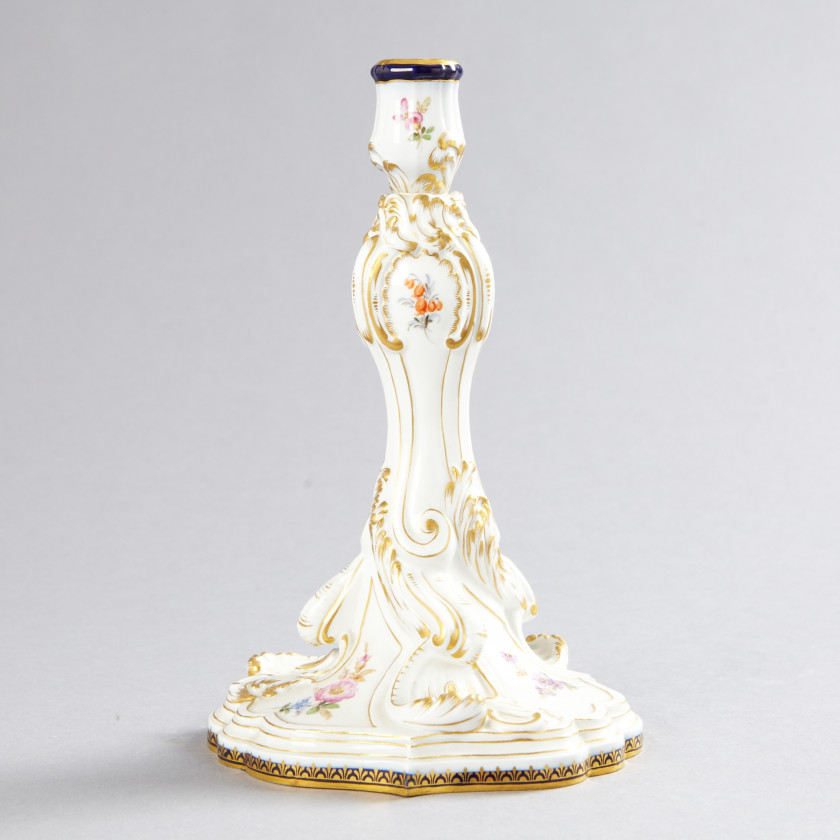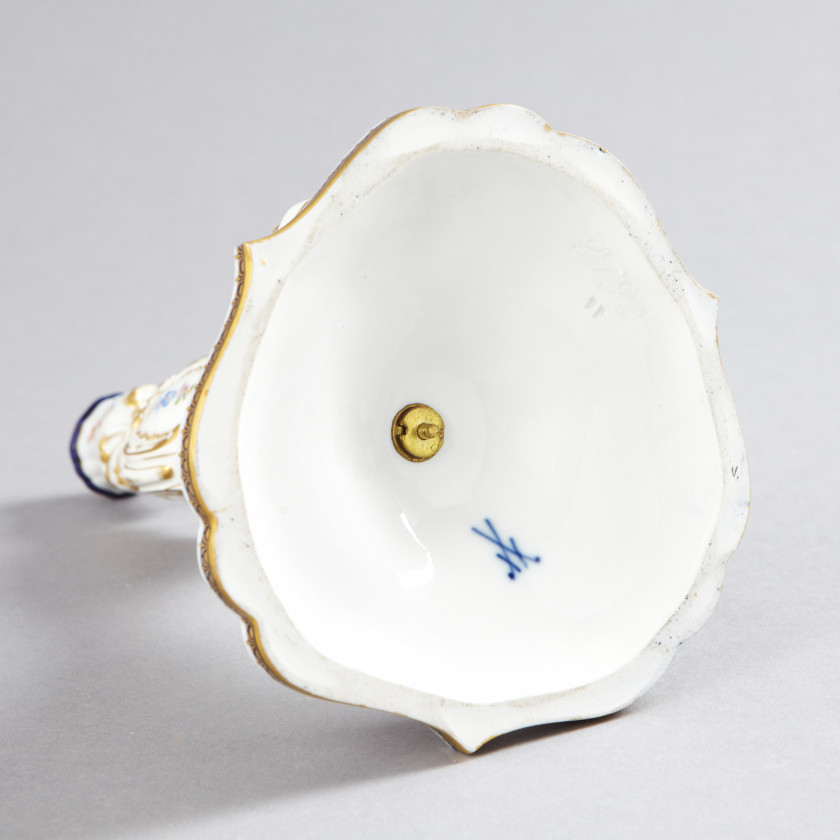Set of two porcelain candlesticks
-
900.00 EUR
Artist/Maker: Meissen
Artist/Maker Dates: 1710 - present
Place of Production: Germany
Date of Production: 1920s - 1930s
Materials: gilding, porcelain, underglaze hand painting
Model Nr.: 2618
Height: 25.5 cm.
Condition:
Description
Meissen porcelain Early in the 18th century, Augustus the Strong,
elector of Saxony, arrested alchemist Johann Friedrich Bottger and
imprisoned him in the town of Meissen; his mission, to discover the
secret formula for hard paste porcelain. In 1708 Bottger unlocked the
mystery and found the key to both porcelain and his freedom, and by 1718
factories began springing up across Europe fostering an atmosphere of
ferocious competition. By 1720, the Meissen factory was producing wares
that eclipsed even the finest Chinese porcelain. They dominated the
European market and influenced porcelain production around the world.
The Seven Year War in the late 1750s brought a halt to production at
Meissen, and the mantle fell to the Royal Manufactory at Sévres, France,
under the direction of King Louis VX. The third European factory to
lead the market was that of Vienna, which in 1744 became the property of
the Empire. Meissen procelain is perhaps most noted for its allegorical
figures and those of everyday people in period costume and is without a
doubt the most decorative of the three factories. Often heavily adorned
with floral decoration, Meissen pieces imbue a fresh spontaneity and
fluidity of motion along with an incredible technical excellence.
Figures, urns, candelabra, mirrors etc. reflect a playful elegance and
charm that has made them popular for more than 200 years. Authentic
Meissen is marked with the traditional blue crossed swords which,
despite minor variations over the years, has remained consistent.
Learning these subtle variations, however, could prove invaluable not
only in dating pieces but in recognizing fakes and distinguishing the
mark from similar ones used by factories hoping to confuse the public.
Meissen porcelain patterns have been copied by many other china makers
all over the world like Royal Copenhagen, Dresden, Herend, and many
other makers. The glaze on Meissen porcelain maintains its quality over
time. This is why old Meissen looks so new and keeps its good condition.
Other porcelains graze and have many more problems staying in good
condition.
Shipping details
- Log in to see the cost for shipping this lot to your address.
Shipping methods are determined by item size, type, fragility and specific characteristics.
Shipping costs are calculated based on carrier rates, delivery distance and packing complexity.
Payment details
Doma Antikvariāts accepts the following payment methods:








